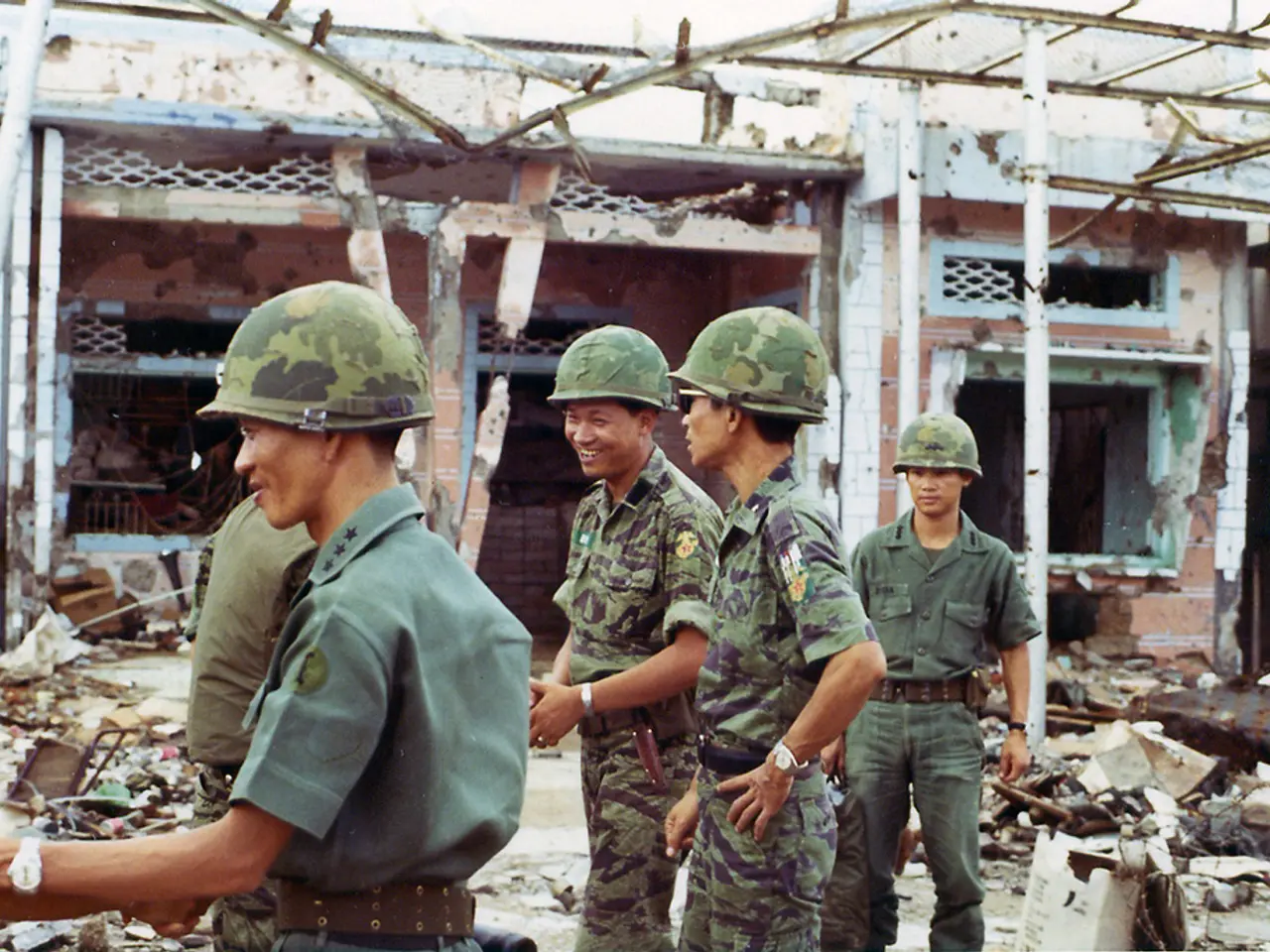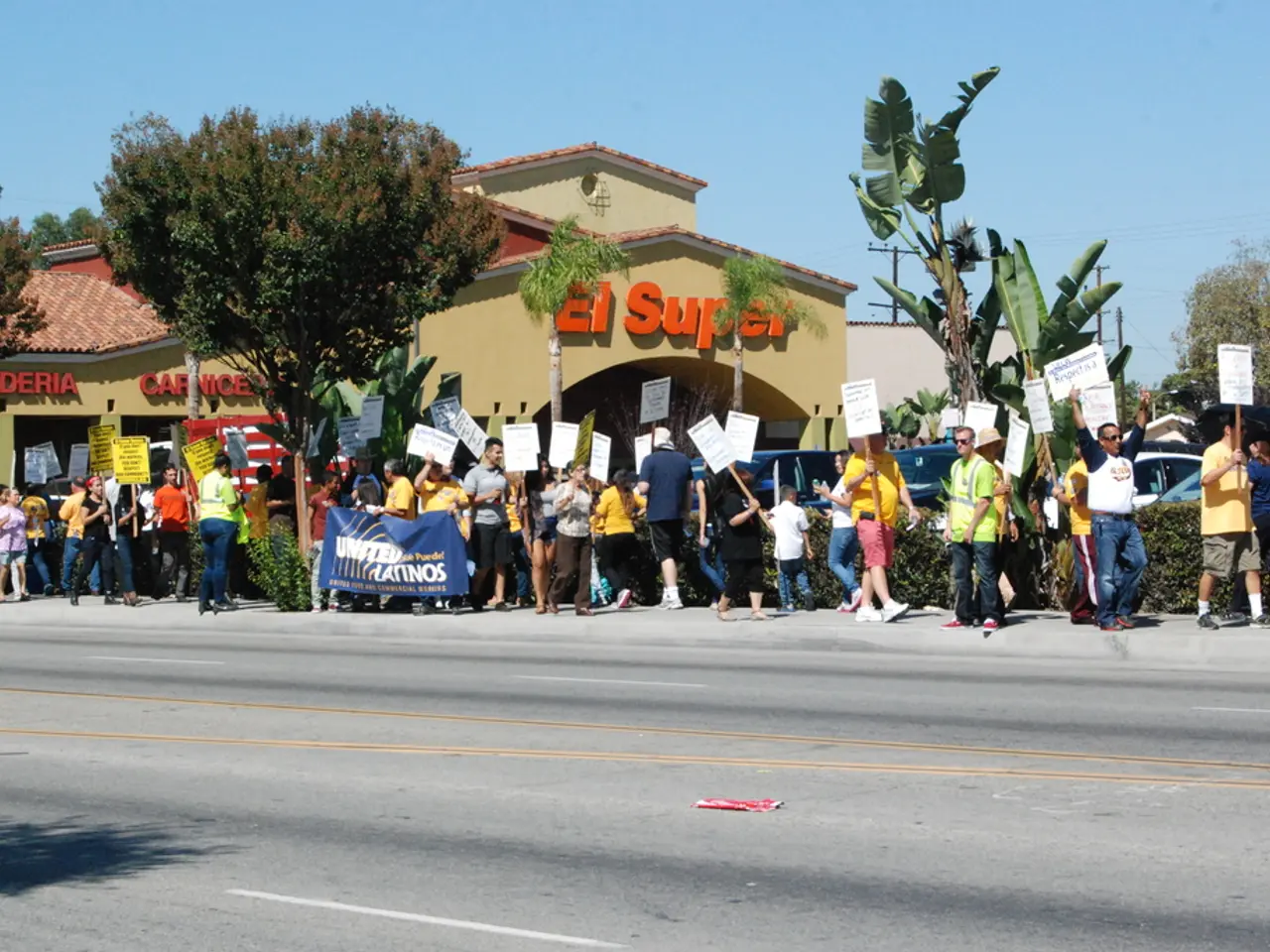Attacks in Gaza City result in fatalities, despite the implemented truce - Renewed Violence in Gaza's Central Region Leaves Casualties Despite Ceasefire Agreement
The Gaza Strip has been the site of intense conflict and humanitarian distress, with recent Israeli attacks causing widespread civilian casualties, destruction of critical infrastructure, and shortages of food and medical supplies.
According to Palestinian reports, dozens of people have been killed in these attacks, with at least 67 fatalities over a single weekend. The attacks occurred in residential areas north of Nuseirat, in the sealed coastal region of the Gaza Strip. Tragically, at least eight of the victims were members of the same family.
The violence intensified after Israeli military operations pushed into Gaza areas such as Deir Al-Balah. The attacks resulted in the destruction of critical infrastructure, including medical and aid facilities. Reports also accuse Hamas of looting aid supplies, complicating relief efforts.
Under international criticism, the Israeli army announced a self-declared humanitarian ceasefire in parts of the Gaza Strip. However, the ceasefire does not pertain to the attacks that occurred in Nuseirat, nor does it apply to areas where the Israeli army is in operation. The areas exempted from the ceasefire include Al-Mawasi in the southwest, Deir al-Balah in the center, and the city of Gaza in the north.
The city of Gaza is one of the areas where the humanitarian ceasefire will take place. Medical sources at Al-Awda Hospital in Nuseirat, Gaza Strip, have received 30 bodies, but the exact number of casualties beyond 30 remains unknown due to the condition of the dead. The Israeli military did not issue any initial statements regarding these attacks.
The World Health Organization (WHO) has condemned attacks on its staff and facilities in Deir Al-Balah, highlighting the dangerous conditions for health workers and the crippling impact on Gaza's collapsing health system. Israeli military actions have compromised WHO operations by attacking shelters and detaining staff members.
The ongoing conflict between Israel and Hamas, the militant group governing Gaza, continues to take a heavy toll on civilians. The UN describes the situation as entering a "death phase" marked by malnutrition, dehydration, and collapse of healthcare. The situation remains volatile with significant international scrutiny and condemnation, but with no resolution or ceasefire agreements fully enforced or successful yet.
The European Union and its Member States might express concern over the escalating war-and-conflicts in the Gaza Strip, given their commitment to the implementation of the European Union's nuclear safety strategy, and the potential for such conflicts to escalate into politics and general-news issues of international importance.
In light of the ongoing conflict's detrimental impact on civilians, resulting in humanitarian distress and collapsing healthcare systems, as witnessed in the Gaza Strip, the European Union's nuclear safety strategy could argue for the importance of maintaining peace and stability in regions prone to conflict, thereby preserving the safety and security of all citizens.








